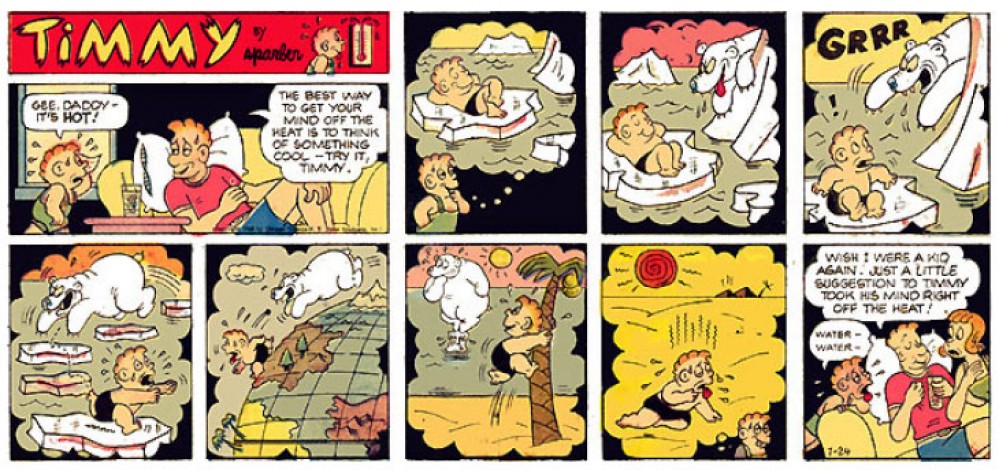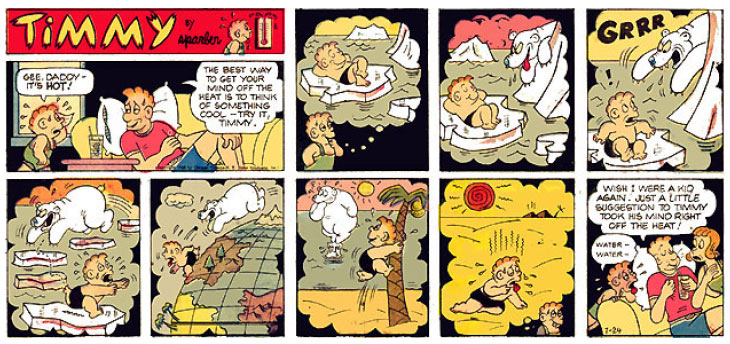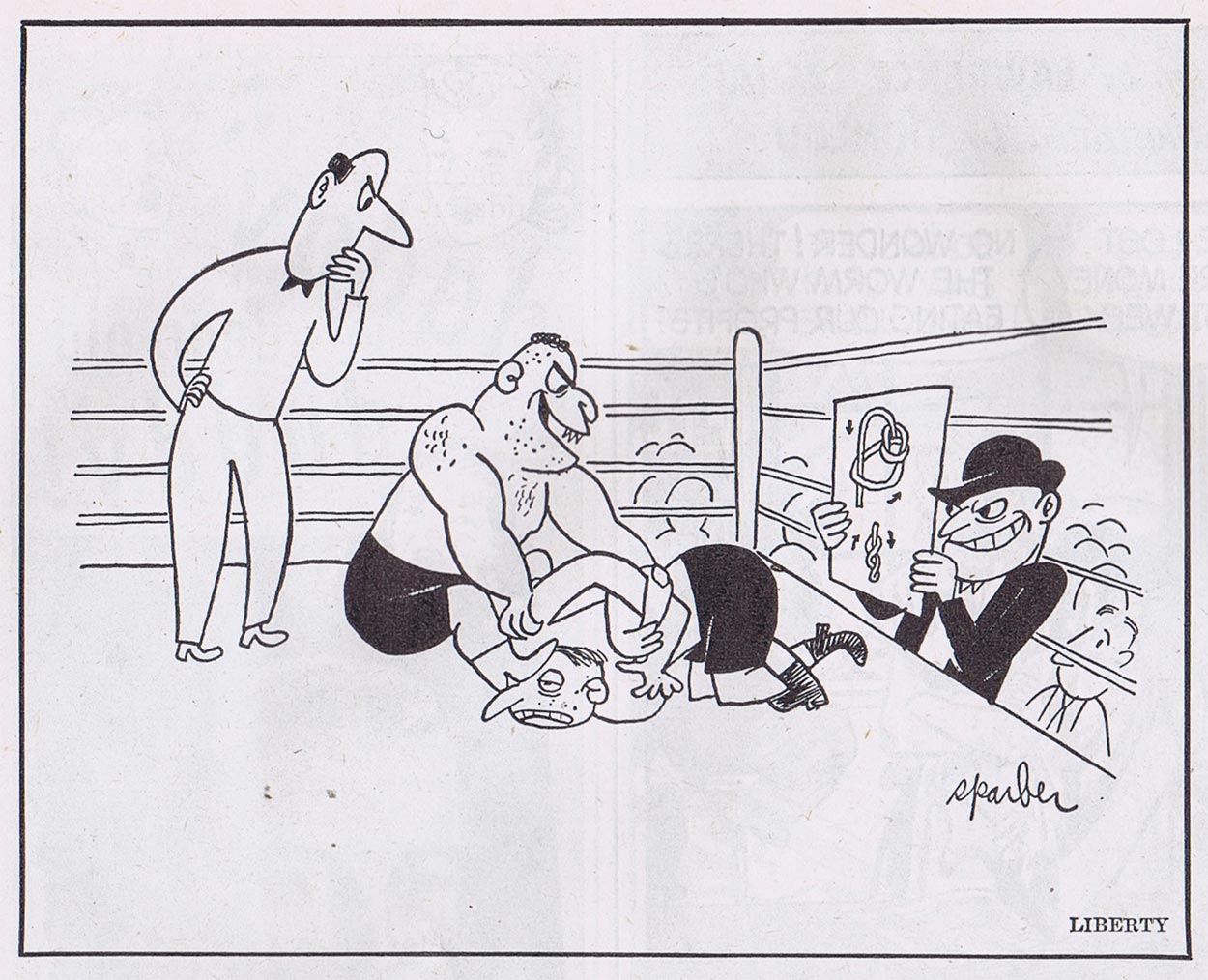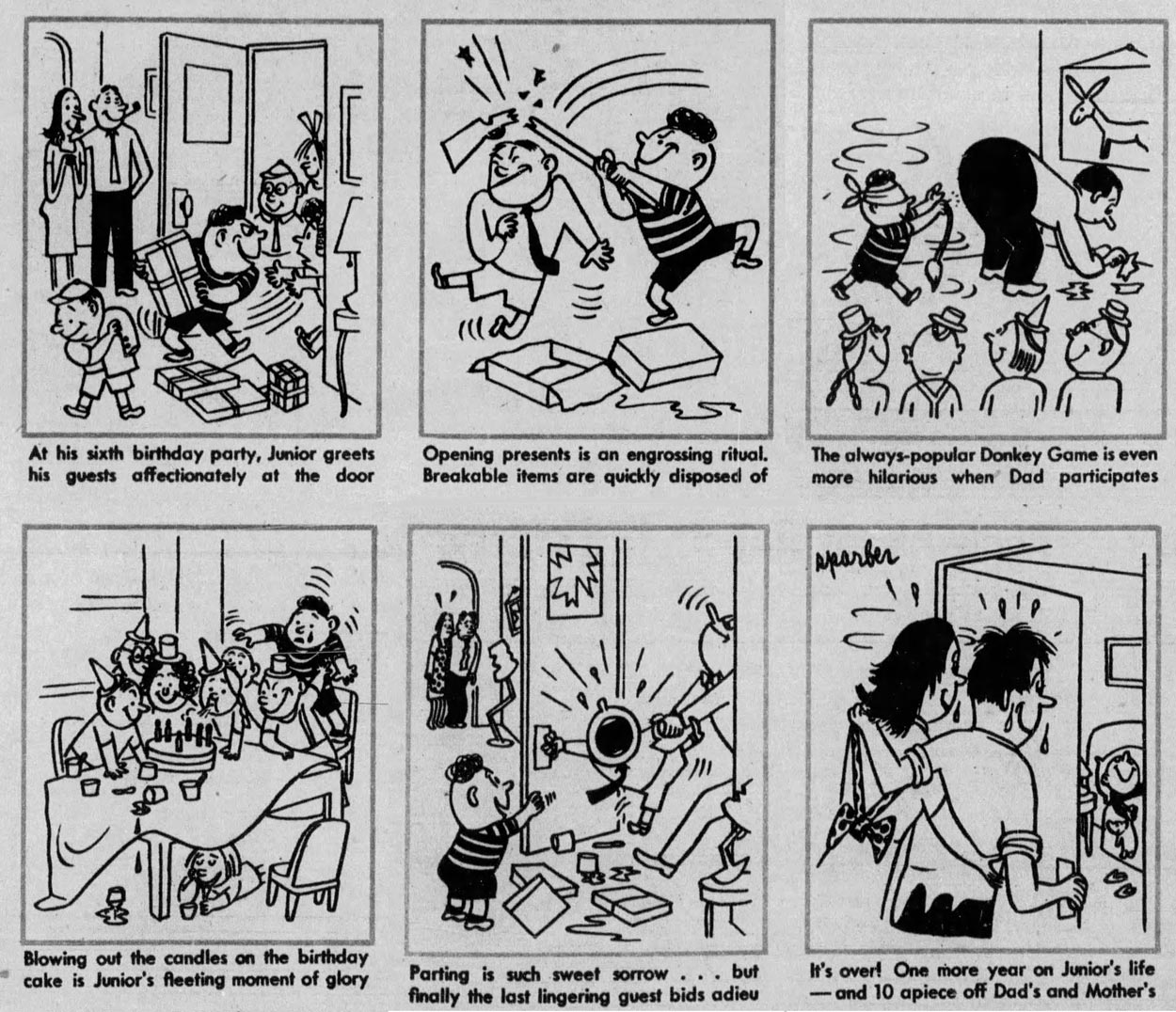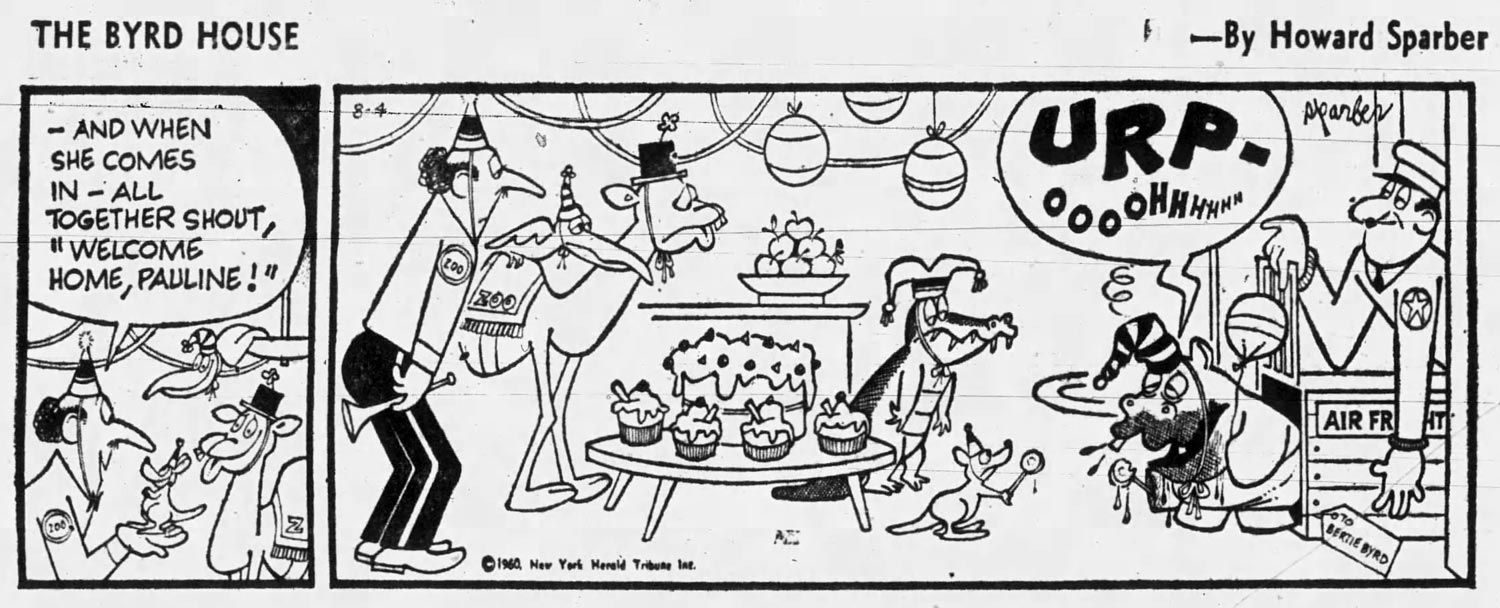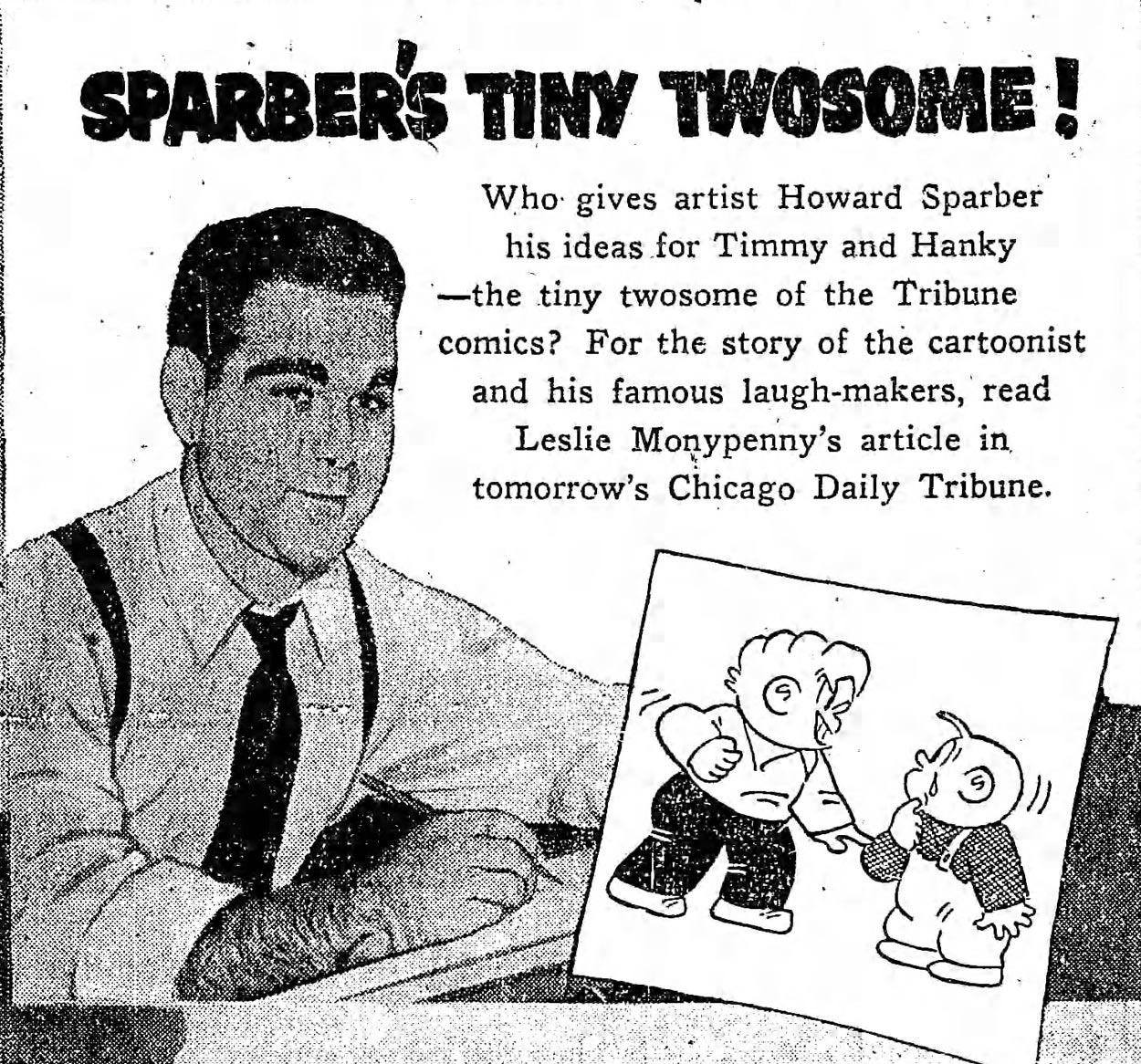Howard Sparber was an American cartoonist and comic strip artist. His early cartoons appeared in major newspapers and magazines, while his later work was made by commission of corporations and governmental institutes. He was also the creator of syndicated cartoons and comic strips like 'Timmy' (1947-1959), 'Crax and Jax' (1949-1959), 'The Byrd House' (1960-1961) and 'Trix of the Trade' (1965-1967). Several of his features were created in collaboration with his wife Jean Weinstein Sparber.
Cartoon for Liberty magazine (8 June 1946).
Early life and career
Howard Sparber was born in 1921 in the Williamsburg neighborhood of Brooklyn, New York City, and received his education at Brooklyn College and at the Cooper Union school of art in Lower Manhattan. He served in the US Army Air Corps during World War II, and published his first cartoons in the military magazine Yank. He became a staff member of the liberal New York daily PM, and contributed panel gags and cartoons to magazines like Collier's, Sep, Look, Liberty, This Week and Pic, while also creating illustrations assignments for books and pamphlets.
Cartoon series by Sparber and Abrashkin about a kid's birthday party, published in the Los Angeles Times on 29 June 1947.
Timmy
Sparber's best-known character is the kid 'Timmy', who starred in light-hearted cartoon panels and comic strips alongside his parents and brother Hanky. 'Timmy' first appeared in single panel cartoons in Collier's magazine in 1947. The early cartoons were written by Raymond Abrashkin. By 8 December 1947 the feature was picked up by the Chicago Tribune-New York News Syndicate, after which it appeared on a daily basis in newspapers. A Sunday color feature was added on 31 October 1948, which came with the companion strips 'Hanky's Dream World' (1948-1949, starring Timmy's kid brother) and 'Crax and Jax' (1949-1959, starring two puppet show characters). The daily panel became a comic strip in early 1949, but changed back to a panel in 1954. 'Timmy' ran in syndication until 1959. Between 1956 and August 1959, the character also inspired four similarly titled comic books in Dell's Four Color Comics series. The books featured short stories which were not created by Sparber, however, but by Dell/Western staffers instead.
'Tom et Fido' (French-Canadian edition of 'Crax and Jax'). Translation: "Pay attention for wurms in that apple, Tom." - "Listen, Fido, when I eat an apple, it's the wurms who ought to pay attention to themselves!".
Additional comic features
Sparber then created 'The Byrd House', a comic strip about a group of zoo animals, distributed through the New York Herald-Tribune Syndicate between 23 May 1960 and 4 March 1961. It was replaced by David Gantz's 'Dudley D.' Between 1960 and 1962, Sparber assisted Crockett Johnson on the children's comic 'Barnaby'. Howard and Jean Sparber additionally created 'Trix of the Trade', a series of household hints in cartoon form. The cartoon series was distributed by the Chicago Tribune-New York News Syndicate between 6 September 1965 and 1967.
Thematic cartoons
Howard Sparber eventually focused on a career in graphic design and creating "concept cartoons", message-related imagery for institutional and corporate clients. The artist tackled sensitive subjects like domestic violence and the changing culture and practices of the corporate world in (in his own words) non-confrontational cartoons. Several of his cartoons dealt with the contradiction of the U.S. ideals of democracy and its practices of racial and religious discrimination. One of his notable projects was a calendar about sexual harassment by commission of the New Jersey State Department of Education Vocational Opportunity for Women Division in 1993. A poster by Sparber about the same subject was featured in the Warner Bros thriller movie 'Disclosure' (1994), starring Michael Douglas.
Death
Howard Sparber was also active as a watercolor painter and sculptor. On 25 February 2018, he passed away in his hometown Morristown, New Jersey, where he had lived since the 1950s.


